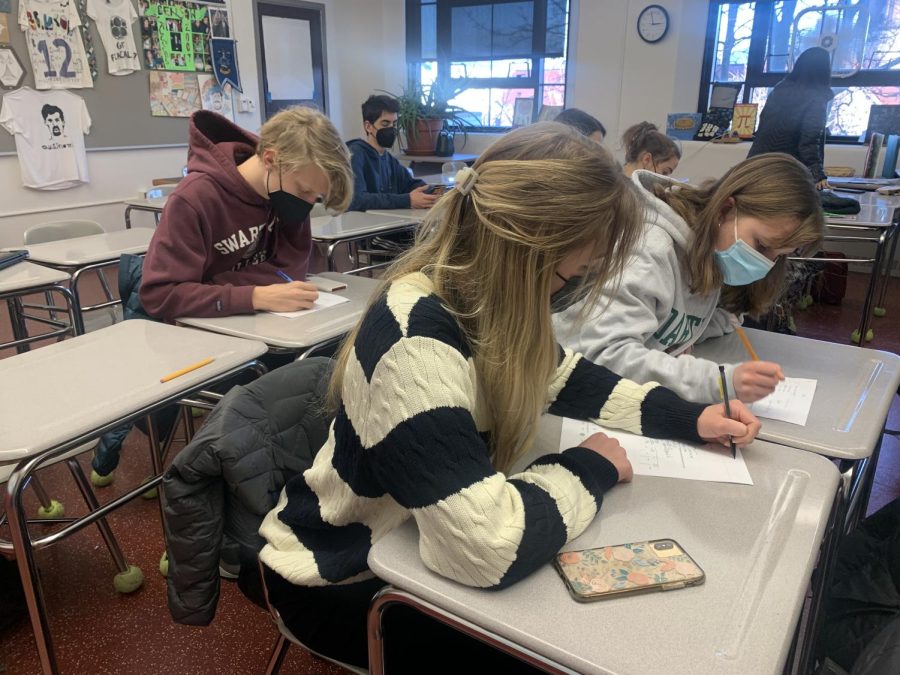CRLS Must Stay In-Person
Closing CRLS now would provide very little benefit to students and the broader Cambridge community.
February 6, 2022
The COVID-19 pandemic has been raging for nearly two years and cases are peaking in the US due to the omicron variant. However, life is a lot different now than it was in March 2020. We have adapted to living within this pandemic, and Massachusetts has fully reopened. The last thing we need is a return to the school closures that ruined so much of our high school experience. In-person learning provides so many opportunities for education and community engagement that completely outweigh the dangers that COVID-19 may present.
The return to in-person learning this fall was celebrated as a moment of recovery from the pandemic because of our ability to more safely gather as a community. At this point where everyone has the opportunity to be vaccinated, we can’t proceed the same way we did at the beginning of the pandemic. Students have made it clear that remote learning was unproductive at best, and has caused severe mental harm at its worst; particularly for neurodivergent students or those with home environments that made it difficult to focus. Giselle Korn ’22 told the Register Forum, “I have ADHD, and sitting on a computer screen, I can’t focus. There are too many distractions at home: with my parents doing video calls for work, and all of my siblings doing school at home as well, it just doesn’t work.” In-person school clearly provides a space for many students that is far more conducive to learning than their home environments.
Socially isolating our students through online school clearly worsened mental health issues of CRLS students, a fact which is made clear by the 2021 CPSD Teen Health Survey results. Conducted during remote/hybrid learning last spring, 46% of CRLS students reported feeling consistently anxious, and 35% of CRLS students reported feeling depressed to the point that it interrupted their routines. While this may not all be able to be attributed to online school, it is safe to assume that a significant portion of mental anguish was caused by the isolation online school resulted in. Going online cannot justify the harm that remote schooling will cause CRLS students, even for just a short period of time.
CRLS also provides many student services and extracurriculars that cannot be replicated virtually. Some students rely on school for food, shelter, and as a safe space to return to each day. Remote learning removes this important aspect of school for many. That’s not to mention extracurricular activities like clubs that are essential to the CRLS experience. Since many of these opportunities are severely limited online, moving extracurriculars online would have a dramatically detrimental effect on students since they are so integral to their lives. For example, participating in any VPA activity like dance, theater, or music is basically impossible over zoom.
Closing CRLS now would provide very little benefit to students and the broader Cambridge community, and there would be many harmful effects placed on students that are too significant to be ignored. Based on the essential services the school provides and the mental effects going remote would have on students, continuing in-person learning is clearly integral to the wellbeing of students at CRLS.











